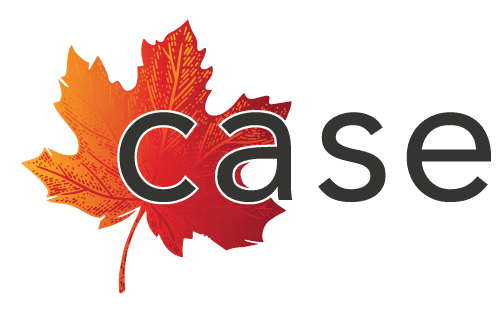Research
CASE investigates emerging trends and challenges in supported employment.
CASE is committed to sharing and advancing evidence-based best practices and innovative approaches around supported employment and inclusive workplaces for persons experiencing disability.
Before best practices can be established, the successes and challenges must be understood, various approaches must be discussed with diverse interest-holders, and potential new methods must be tested.
CASE collaborates with interest-holders in the supported employment sector to learn about the experiences of persons experiencing disability, including those with intersectional identities, as they navigate their employment journeys.
Jump to the following research topics:
Diverse Employment Experiences

Understanding Diverse Employment Experiences
The CASE Innovation Lab collaborated with four organizations to develop the following position papers on intersectionality, disability, and employment in Canada.
Report – English: Do The Rights Thing: Deaf and Disabled Women and Gender-Diverse People and the World of Work
Report – French: « Do The Rights Thing »: Les femmes sourdes et en situation de handicap et les personnes de diverses identités de genre dans le monde du travail
Plain Language Executive Summary – English: Do the Rights Thing: Deaf and Disabled Women, Gender-Diverse People, and the World of Work
Plain Language Executive Summary – French: Faites le bon choix: Les femmes Sourdes et en situation de handicap dans le monde du travail
Report – English: Indigenous Experience with Disability and Employment
Report – French: L’expérience autochtone avec le handicap et l’emploi
Plain Language Executive Summary – English: Indigenous people with disabilities and their experiences with getting a job
Plain Language Executive Summary – French: Autochtones en situation de handicap et leurs expériences dans l’obtention d’un emploi
Report – English: Promoting Employment Participation for Youth with Disabilities in Canada
Report – French: Promotion de la participation à l’emploi pour les jeunes en situation de handicap au Canada
Plain Language Executive Summary – English: Youth with disabilities find it hard to get a job or to be seen as a potential worker
Plain Language Executive Summary – French: Les jeunes en situation de handicap ont de la difficulté à trouver un emploi ou à être perçus comme des potentiels membres du personnel
Report – English: Beyond the Urban Lens: Strengthening Rural and Remote Supported Employment Services in Canada
Report – French: Au-delà de la perspective urbaine: Renforcer les services de soutien à l’emploi dans les régions rurales et éloignées au Canada
Plain Language Executive Summary – English: Building Fair Employment Services in Rural and Remote Communities in Canada
Plain Language Executive Summary – French: Établir des services d’emploi équitables dans les collectivités rurales et éloignées du Canada

Opening the Door to Trades: Pathways to Inclusive Apprenticeship Opportunities
Inclusive apprenticeship opportunities for people living with disabilities were researched, developed, and designed. This project was funded by CASE’s Innovation Lab and was an innovative partnership with the Social Research and Demonstration Corporation (SRDC), Community Living BC, SkilledTradesBC, service providers, and others.
Report – English
Summary – English
Summary – French

Diversity Works
Diversity Works aimed to understand the experiences of Black, Indigenous and People of Colour (BIPOC) who experience disability (BIPOC-D) as they navigate their employment journey with the assistance of supported employment service providers.
Inclusive Mentoring

Disclosure and Inclusive Mentorship for Adults Experiencing Disability
MentorAbility Canada has partnered with the Conference Board of Canada, the nation’s leading independent organization for applied research, to explore inclusive mentoring, disability disclosure, and workplace practices.
Discover the research and valuable resources we are creating together to support employers in fostering inclusive workplaces across Canada.

Mentoring for Persons Experiencing Disabilities: A Review of the Literature
Mentor Canada and CASE’s MentorAbility initiative undertook an environmental scan and literature review to better understand the benefits of mentoring for persons experiencing disability who participate in mentoring activities and programs.
Emerging evidence suggests that mentoring can be an effective intervention for persons experiencing disabilities, with the potential to support educational attainment, career outcomes, social skills, self-esteem, and self-determination.

The Mentoring Effect: Youth Experiencing Disability
What prevents children and youth experiencing disability from accessing mentors? How can we close the mentoring gap? This issue brief was developed by Mentor Canada in collaboration with CASE’s MentorAbility Canada initiative.
Disability and Employment

Understanding Public Sentiment on Disability and Employment through Social Media Analysis
Social media conversations were analyzed to identify how disability and employment are framed in different spaces and how these perspectives impact workplace inclusion. Recurring themes, public attitudes, misconceptions, and biases influencing workplace inclusion were identified. Sentiment analysis tracked how public attitudes fluctuated over time and across different groups.

CASE + RWA Resource Development
CASE and Inclusion Canada’s Ready, Willing and Able Initiative held a series of five focus group sessions to shape the development of resources for supported employment practitioners, job seekers, and employers.
Employment Service Providers
The first three resources help practitioners work with people exploring career advancement, post-secondary education and self-employment as part of a career journey.
Job Seekers and Employers
Two resources for job seekers and employers explain the benefits of working with a support organization and the role of a job coach. They answer questions often asked by job seekers and employers.

Canada COVID-19 Impact on Disability Employment Outcomes and Services
CASE partnered with APSE (Association of People Supporting Employment First) in their mission to assess the direct impact that COVID-19 has had on disability employment outcomes and services. They also identified any programming needs that may have resulted from the COVID-19 pandemic.
Research from other sources:
- Shaping Canada's Disability Inclusion Action Plan: Bridging the gap between lived experiences and policy through a community-led, capacity building and knowledge-exchange approach
- The Employment Quality of Persons with Disabilities: Findings from a National Survey
- Advancing Equal Access in the Workplace for Persons Who Experience Intellectual Disability
- Status of IDEA in Canada’s Life Sciences Sector
- Tools and Resources Portal | VRAIE IDEA
Contact Us
If you are interested in a research collaboration with CASE, please reach out to us at [email protected].
Newsletter
Sign up for our e-newsletter and stay current with all the latest from CASE and supported employment work across Canada and beyond. You’ll also receive our latest promotions and offers. We will not share your email address with any third-party vendors. See our Privacy Policy (at the link below under Quick Links) for full details on how we protect your personal information.
Connect With CASE
Tell us about new, innovative supported employment initiatives your organization is spearheading. Please send us your ideas or advice on how CASE can better serve you.

